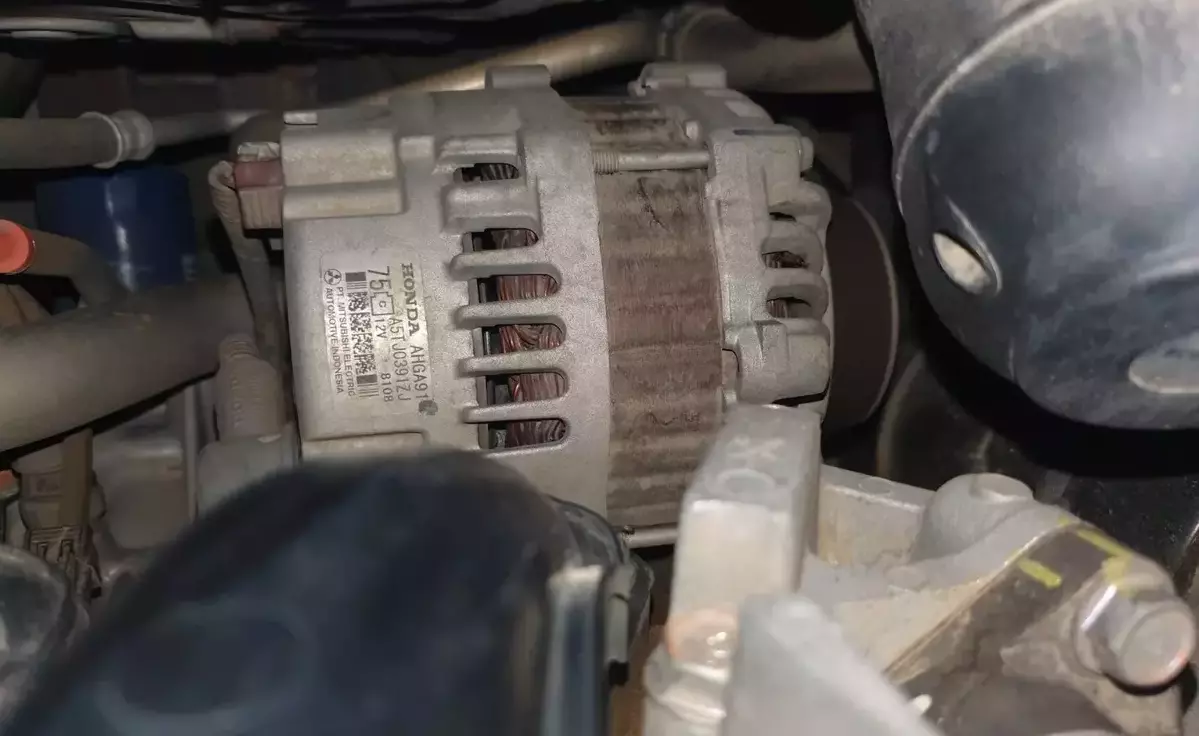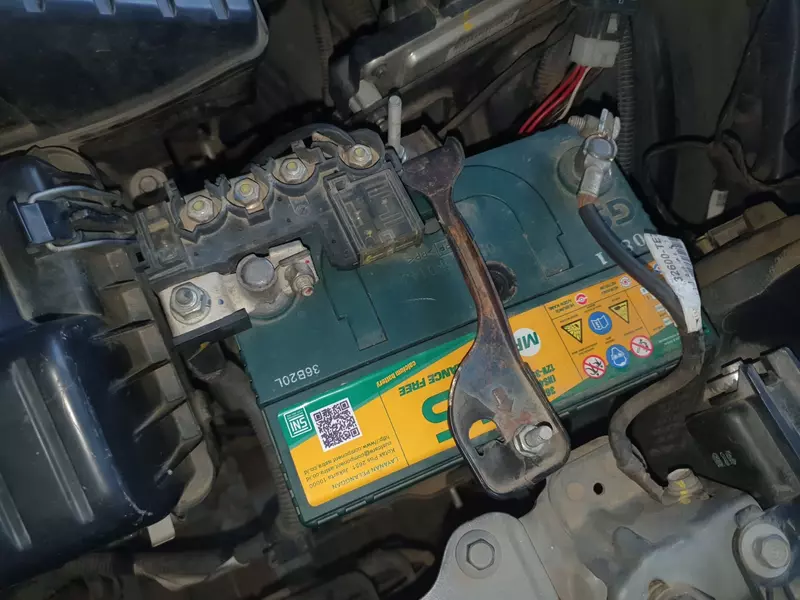A car alternator is a key component in a vehicle’s electrical system. The most common cause of alternator failure is burnt-out winding.
When an alternator winding burns out, it can cause a short circuit that will quickly destroy the alternator.
While alternator burn out is rare, it can be very dangerous. If you suspect that your alternator is failing, it’s important to have it checked by a qualified mechanic as soon as possible.
Table of Contents
- Why Does My Car Keep Killing Alternators?
- What Causes a Car Alternator to Burnout?
- How to Prevent Alternator Failure?
- How Long Should an Alternator Last?
- How Long Can You Drive with a Failing Alternator?
- Can You Jump a Car with a Bad Alternator?
- Can a Bad Alternator Kill My Battery?
- How to Test an Alternator Without a Multimeter?
- Conclusion
Why Does My Car Keep Killing Alternators?
Alternators are an essential component of any car and play a vital role in keeping the battery charged. However, alternators can also be very fragile and often fail without warning.
One of the most common causes of alternator failure is electrical problems. If the charging system is not working properly, it can place a strain on the alternator, causing it to overheat and eventually break down.
In some cases, simply replacing a damaged wire or connector can solve the problem. Voltage spikes can also kill alternators from other electrical components.
If there is a problem with the ignition system, or if the headlights are left on for too long, it can send a surge of electricity through the system and fry the alternator.
In short, there are many potential causes of alternator failure, but electrical problems are among the most common.

What Causes a Car Alternator to Burnout?
There are several reasons why an alternator might burn out, including a Faulty fuse, wiring issues, Problems with the computer system, a Severed pulley or belt, and a Worn-out alternator. Sometimes, an alternator can be repaired, but it will need to be replaced in other cases.
Understanding the common causes of alternator burnout can help drivers troubleshoot problems and avoid being stranded on the side of the road.
Faulty fuse
One of the most common causes of alternator burnout is a faulty fuse. When a fuse blows, it allows too much current to flow through the electrical system, which can cause the alternator to overheat and eventually fail.
The best way to prevent this problem is to regularly check the fuses and replace any blown ones.
Another way to prevent alternator burnout is to keep the battery charged. A charged battery helps to keep the electrical system running smoothly and prevents the alternator from being overworked.
Finally, ensure the alternator is checked regularly by a qualified mechanic. By taking these simple steps, you can help extend the life of your alternator and avoid the costly repairs that can be necessary when it burns out.
Issues with wiring
One common cause issues with the wiring. If the wiring is damaged or frayed, it can cause a short circuit that strains the alternator.
Additionally, if the wires are not properly connected to the alternator, they can create resistance that can lead to overheating and eventual burnout.
Problems with the computer system
One of the most common causes of car alternator burnout is a problem with the computer system.
The alternator is responsible for keeping the battery charged, and if there is a problem with the computer system, it can cause the alternator to work harder than it should. This can lead to the alternator overheating and eventually burning out.
In some cases, a faulty computer system can also cause the battery to drain too quickly, which can also lead to alternator burnout.
If you suspect your car’s alternator has problems, it’s important to take it to a mechanic as soon as possible. They can troubleshoot the problem and ensure your car’s electrical system is working properly.
Severed pulley or belt
If the alternator belt breaks or slips, it can cause the alternator to overheat and burn out.
When this happens, the battery will eventually lose its charge, and the electrical system will fail. In some cases, the engine may also stall.
Worn-out alternator
Over time, car alternators can become worn out and damaged, leading to various problems.
One of the most serious consequences of a damaged alternator is alternator burnout.
Alternator burnout occurs when the alternator overheats and catches fire. This can cause extensive damage to the engine and electrical system and can also be a safety hazard for occupants of the car.
In most cases, worn-out alternators are the cause of alternator burnout. When an alternator is not functioning properly, it puts additional strain on the engine, causing it to overheat.
In some cases, faulty wiring can also contribute to alternator burnout. To avoid this problem, it is important to have your car’s alternator checked regularly by a qualified mechanic.
How to Prevent Alternator Failure?
Alternator failure can be a serious issue for any driver. The alternator is responsible for charging the battery; if it fails, it will quickly run out of power. You can do a few simple things to help prevent alternator failure.
First, check the battery and regularly clean the terminals if necessary.
Second, avoid making short trips where the engine does not have a chance to warm up properly.
Finally, have the alternator checked by a mechanic every few years to ensure it is in good working condition. By taking these simple steps, you can help prevent alternator failure and keep your car running smoothly.
How Long Should an Alternator Last?
Many factors can affect an alternator’s lifespan, including the vehicle’s make and model, driving habits, and maintenance schedule.
In most cases, however, an alternator should last between 60,000 and 100,000 miles. Of course, this is just a general estimate – some alternators may fail sooner, while others may last much longer.
If you want to get the most out of your alternator, it’s important to keep up with scheduled maintenance and avoid putting too much strain on the electrical system.
How Long Can You Drive with a Failing Alternator?
Generally speaking, you shouldn’t try to drive more than a few miles with a failing alternator. If you do, you risk your battery dying or your engine stalling.
In some cases, you might even damage your car’s electrical system. So if you think your alternator is starting to fail, it’s best to get it checked out by a mechanic as soon as possible.
Can You Jump a Car with a Bad Alternator?
If you have a bad alternator, you may be able to jump-start your car. However, this is not always the case, and it is best to consult a mechanic or other expert before attempting.
If you jump-start your car with a bad alternator, be sure to drive it directly to a service station or mechanic to fix the problem as soon as possible.
Can a Bad Alternator Kill My Battery?
Yes, a bad alternator can kill your battery. If the alternator is not charging the battery properly, it can overwork the battery and cause it to fail. A failed battery will not be able to start your car or power any of the electrical systems in your vehicle.

How to Test an Alternator Without a Multimeter?
One way to do this is to start the car and turn on all accessories, such as the headlights, windshield wipers, and radio. If the car’s engine begins to struggle or stall, then this is a sign that the alternator is not working properly.
Another way to test an alternator is to turn off the engine and disconnect the battery simply. If there is no power at all, then this indicates that the alternator has failed.
Conclusion
One of the most common causes of car breakdown is alternator failure. The alternator is a vital component of the car’s electrical system and is responsible for charging the battery and powering the electrical accessories.
When the alternator fails, the battery will eventually run out of power, and the electrical accessories will stop working. In some cases, the engine may also stall.
Alternator failure can be caused by several factors, including a loose drive belt, a failed bearing, or a faulty rectifier. If you suspect that your alternator is failing, it is important to have it checked by a qualified mechanic as soon as possible.



